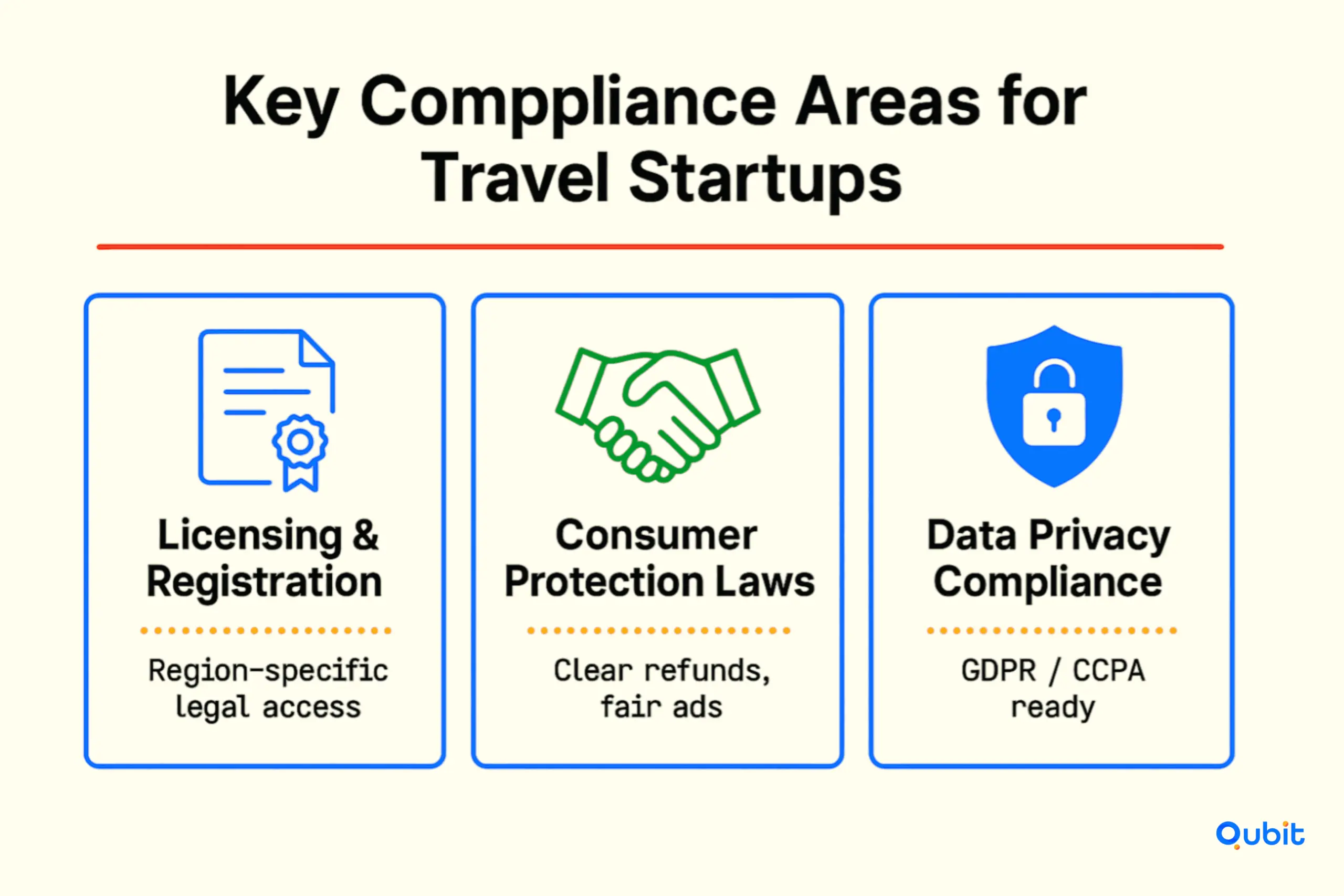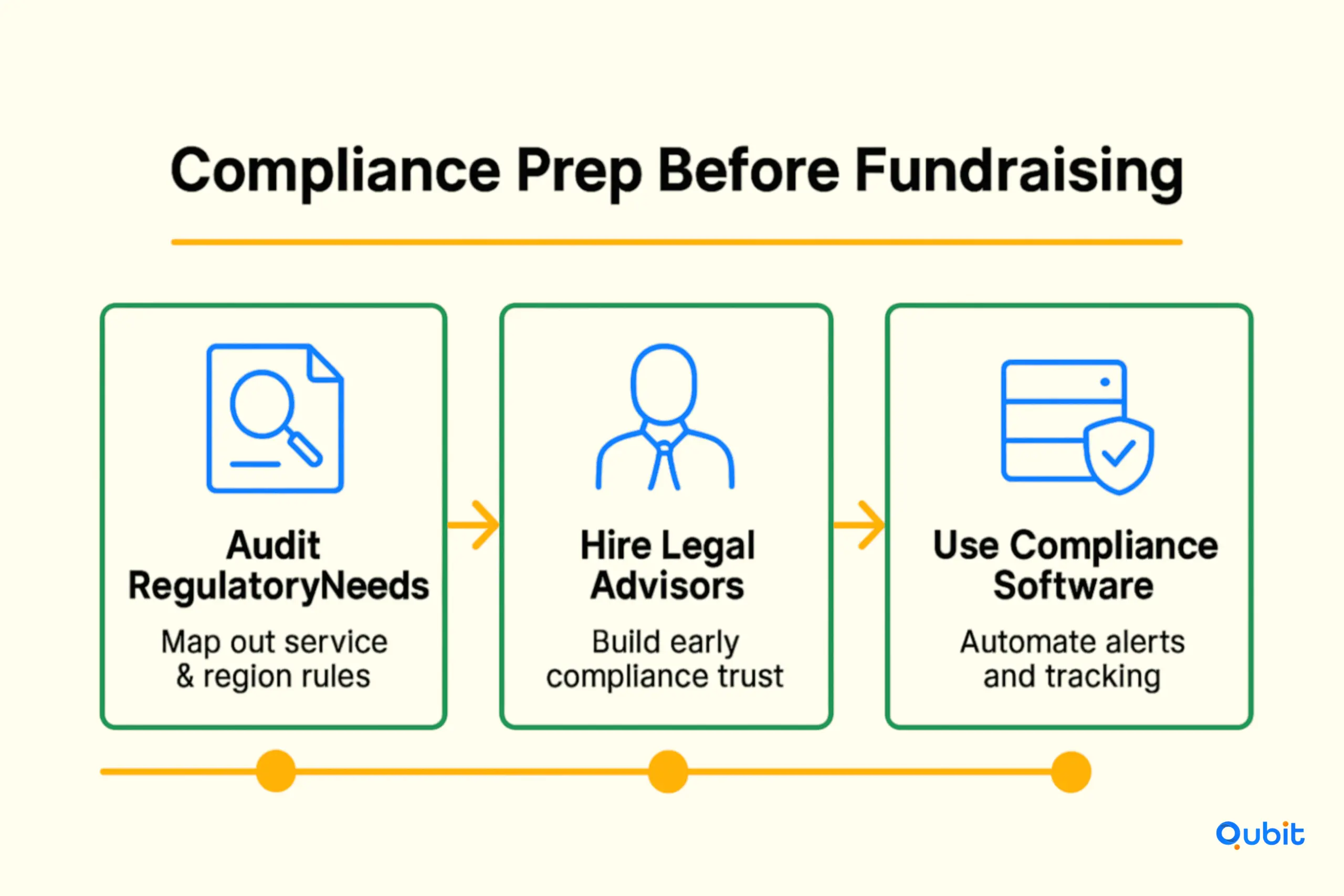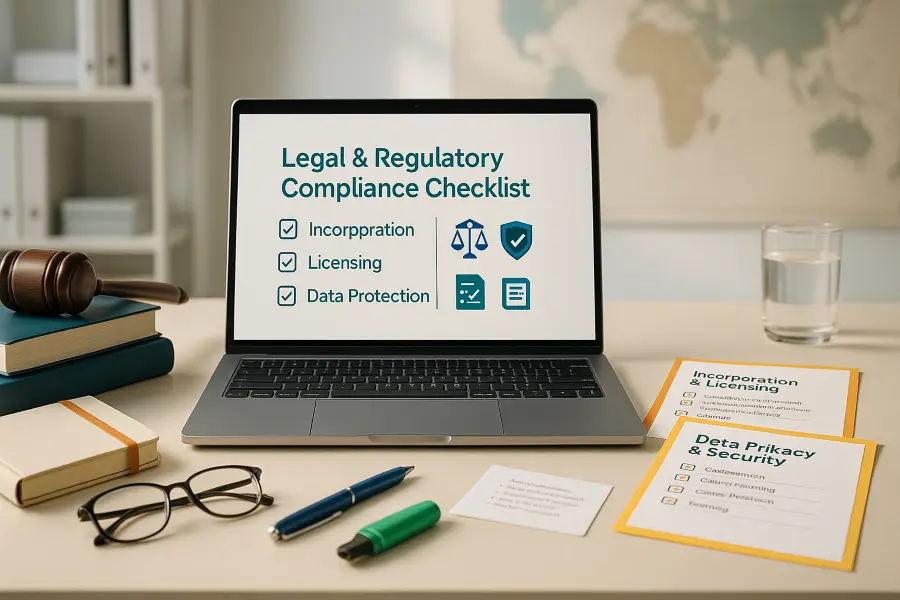Launching a successful travel startup is about more than just a good business idea, it involves navigating a complex maze of legal and regulatory compliance requirements. For entrepreneurs, understanding compliance isn’t just a legal obligation; it's a strategic necessity that significantly impacts your funding opportunities. Investors are wary of regulatory risks, and startups that proactively address compliance create stronger foundations for sustainable growth.
In this article, we’ll help you understand compliance challenges and their direct influence on fundraising. You’ll discover how to integrate regulatory considerations effectively into your funding strategy, enhancing your credibility with investors and setting your travel startup up for long-term success.
Let’s dive in!
Why Compliance Matters in Travel Startup Fundraising
Travel is among the most regulated industries globally, influenced by factors such as consumer protection laws, data privacy requirements, licensing rules, and cross-border regulations. Investors are sensitive to these risks—failure to comply can mean fines, litigation, or even business shutdowns.
Therefore, demonstrating comprehensive compliance strategies is key to securing funding. Investors favor businesses that mitigate regulatory risk proactively, making compliance central to your fundraising narrative.
Key Compliance Areas for Travel Startups

1. Licensing and Registration
Travel startups typically must secure various licenses to operate legally. Depending on your service—whether it's tour operations, accommodations, travel agencies, or transportation—you’ll encounter different licensing requirements. These licenses may vary significantly by region or country.
Tip: Clearly outline these licensing steps in your business plan, demonstrating awareness and preparedness to potential investors. Investors see this as a proactive measure against costly delays and fines.
2. Consumer Protection Compliance
Travel companies must adhere to strict consumer protection laws, especially concerning cancellations, refunds, disclosures, and advertising standards. For example, EU travel businesses must comply with the Package Travel Directive, mandating clear refund and compensation policies.
Compliance here isn't optional; failing to adhere can lead to severe reputational damage and penalties, which deter investors.
Tip: Incorporate detailed policies into your investor pitch to reassure backers that your business is protected against consumer-related litigation risks.
3. Data Privacy and Security Regulations
Travel startups handle sensitive customer information regularly. Compliance with data protection laws like GDPR (Europe) or CCPA (California) is non-negotiable. Violations can result in steep fines and severe reputational harm.
Clearly articulate your privacy policy and data security measures to reassure investors you’re safeguarding against regulatory scrutiny.
If you’re ready to integrate robust compliance measures into your funding strategy and secure lasting investment partnerships, our team at Qubit Capital can guide you every step of the way. Let compliance become your competitive edge as you build the future of your travel startup.
Integrating Compliance into Your Fundraising Strategy
Successfully raising funds isn't just about impressive revenue projections. Investors look for a balanced approach: profitable potential combined with rigorous compliance safeguards.
Crafting a Compliance-Driven Business Plan
Your business plan should highlight regulatory awareness clearly. Include sections outlining relevant licensing, compliance procedures, and contingency measures to address potential regulatory changes. Show investors you've proactively prepared for legal contingencies.
For further insights into integrating compliance into your broader strategy, read our detailed guide: Travel Startup Fundraising Strategies.
Compliance as a Selling Point in Your Pitch
Emphasize compliance strengths clearly in your pitch deck. Present compliance not merely as a legal obligation but as a competitive advantage. Investors favor startups demonstrating meticulous preparation and a clear understanding of regulatory risks.
Selecting Compliant Funding Sources
Different funding methods introduce unique compliance considerations:
Venture Capital & Venture Debt
Venture capitalists and venture debt lenders rigorously assess compliance risks, as they aim for scalable and sustainable growth. Startups demonstrating robust compliance frameworks significantly reduce perceived investment risks, enhancing their funding prospects.
Corporate Venture Capital
Corporate investors often have stringent internal compliance requirements. Clearly demonstrating regulatory alignment helps secure valuable strategic partnerships with corporations.
Crowdfunding and Small Business Loans
These funding types have compliance demands relating to financial disclosures, accurate marketing claims, and transparent consumer communications. Proactively managing these areas reduces future risk exposure.
Practical Steps to Enhance Compliance Before Seeking Investment

- Conduct Thorough Regulatory Audits
- Identify all applicable regulations specific to your service offerings and geographic operations.
- Highlight audit results proactively to investors as proof of your compliance strength.
- Engage Compliance Professionals Early
- Work with legal experts experienced in travel-specific compliance to establish robust internal systems.
- Clearly showcase this proactive measure during fundraising discussions.
- Implement Scalable Compliance Technology
- Invest in compliance management software to streamline monitoring and reporting.
- Clearly demonstrate to investors how your technology ensures compliance at scale.
Real-World Compliance Success Stories
Learning from successful travel startups highlights the direct link between compliance strategies and successful funding:
- TravelPerk leveraged rigorous compliance audits to boost investor confidence, securing major funding rounds after showcasing transparent regulatory practices.
- Navan utilized automated compliance systems, significantly reducing operational risks and attracting investor interest due to their strategic regulatory management approach.
Emerging Compliance Trends to Leverage
Investors appreciate startups leveraging emerging compliance solutions. Notable trends include:
- Regulatory Tech Stack Consolidation: Integrated compliance solutions streamline processes, increasing operational efficiency and reducing risks.
- Compliance-as-a-Service Models: These scalable services manage global compliance seamlessly, essential for travel startups aiming at international growth.
Leveraging these trends significantly enhances your attractiveness to investors by showcasing forward-thinking regulatory management.
Conclusion
Successfully raising funds in the highly regulated travel sector means viewing compliance as more than a box-ticking exercise, it's a powerful strategic tool. By embedding regulatory compliance deeply into your funding strategy, you clearly communicate credibility, reduce investor risks, and significantly enhance your startup’s funding appeal.
If you’re looking to turn compliance from checkbox to edge, at Qubit we understand audit trails, consumer-protection rules, and partner requirements. Make credibility a selling point with our travel fundraising assistance and book a fast readiness review.
Key Takeaways
- Compliance builds trust with investors, reducing investment risk.
- Clearly outline licensing and data privacy policies to attract funding.
- Embed regulatory preparedness into your business plan and pitch deck.
- Align your funding choices with industry-specific compliance requirements.
- Leverage emerging compliance technologies to enhance operational credibility.
Frequently asked Questions
What are the regulatory requirements for travel startups?
Travel startups must adhere to regulations that safeguard health, safety, consumer rights, and data privacy. For instance, compliance with GDPR ensures proper handling of customer data, while local consumer protection laws address refund policies and service guarantees.






